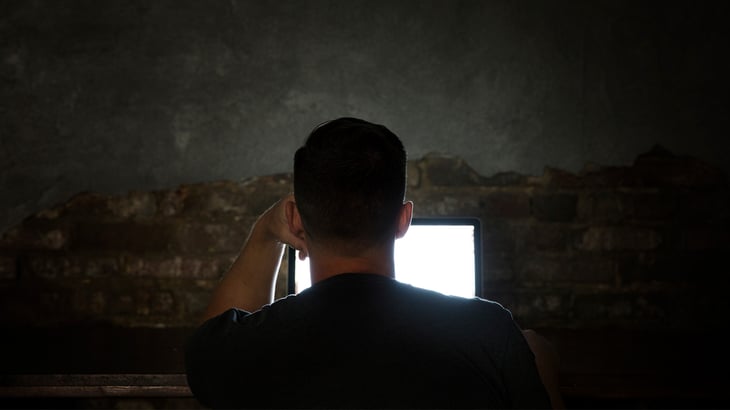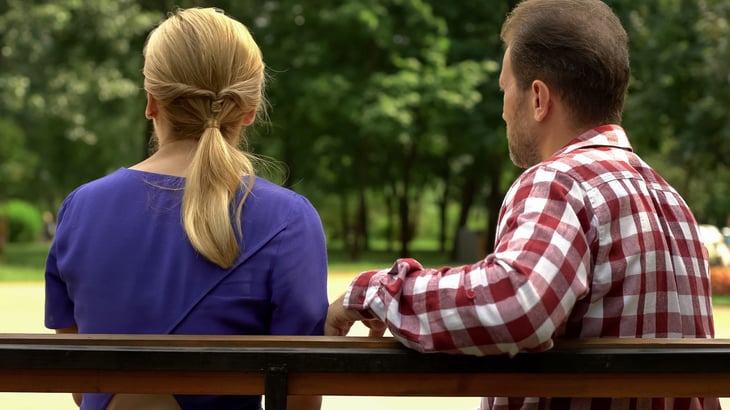The Fear of New Beginnings
How to Be a Christ-Following College Student at Home
Change is an adjustment. For many of us, this change came to us abruptly. I, for one, was on spring break during mid-March. I was happy to be on break and have a week to relax at home with my family. At the end of the week, however, I was told that I would not be returning to campus for in-person classes. As a senior about to graduate in May, I was devastated. Not only did I have to adjust to no longer seeing my classmates, my professors, or the organizations I have been a part of for all four years of my college career, but I also had to adjust to living with my family back at home, as I have been living on my own since the beginning of college.
Accepting Your Baggage and Flaws
We are always our own worst critic. When it comes to our job, our roles in life, or our appearance, we always find something to critique.
Imagine you're meeting someone new for the first time. You are having a conversation and getting to know one another. You may say something the other person does not agree with or may find odd. They may be secretly judging you, or worse, they are judging not so silently.
Hoping for Significance: Sharing Meaningful Scripture
“I want to do something that matters,” Jack said as we were having coffee at the local shop. Jack is a twenty-year-old college student who began to attend our church recently. I hosted a college meet-up in our local coffee shop, and we were talking about what we were looking forward to in the coming year. Our group almost collectively, as if on cue, lowered their gaze and nodded almost imperceptibly in acknowledgment of Jack’s comment. I asked the small group if they felt like they had done something meaningful in their lives so far. At first, there was silence, which rang so loudly in my head. Then, Corinne said the classes she was taking were somewhat meaningful, but she felt an itch to do something deeper that excited her.
As our group talked through their hopes and dreams for the new year, it was tough to let go of Jack’s comment. Each of the young adults agreed on some level—almost as though each of them was hoping for a significance that they felt they lacked. I prayed a quiet prayer.
A Faith That Overwhelms Fear
His heart was racing, beating like a rabbit running for its very life. His mind was like a browser with too many tabs open, and he couldn’t seem to focus on anything. He knew he was overwhelmed, and the thought of doing one more thing was literally terrifying. How had it come to this? Wasn’t this stage of his life supposed to be the best yet? He was beginning to think life was full of lies and competing messages, each louder than the one before. He felt incredibly alone and sad. The only option seemed like sleep, or at the very least, Netflix or YouTube—anything to escape his own head for a while.
The Truth of Dating Someone Who Is Not a Christian
Dating is tricky and very complicated. There are a lot of factors to take into consideration. There are so many ways to meet someone these days: online, through an app, by speed dating, being set up on a blind date, and more. From there, though, you are talking to a complete stranger. Many people gauge dating potential by physical looks, charming character, or a great sense of humor. But what about the person’s religion? Does that have any effect on your dating decisions?
Adjusting to Change in Your College Years
Autumn is my favorite time of year. Looking outside, you can see the trees changing colors and the leaves falling. It is almost therapeutic. You see the landscape around you change year after year. Change is imminent. Change can also bring a new chapter of your life. This chapter may be exciting but also completely terrifying. Not knowing what will happen can make life that much more stressful.
Connecting to College Students during Transitions
Arnav is a student at a state university. He was involved in youth group in high school, and he attended church regularly—at least twice a month. As he entered college, however, he found himself unsure and out of his element. Friendships he had known since middle school were now spread out across the country, and, according to what he saw on Instagram, all of them seemed to be happily settling in. Arnav, though, was not happily settling in. Since starting college, he has felt sad and upset. If he were honest, he would he would have to admit that he is lonely. He feels an awful lot like he did at the beginning of middle school, except he can’t go home and the stakes seem so much higher now.
This post is the third in a three-part series about ministering to those who are walking with Jesus in their post-high school and pre-family-of-their-own years.
Connecting to College Students through Care Packages
Many churches are seeking ways to continue their relational influence in the lives of students who attend colleges away from home. Ministry to college students can cover many areas. In this post, we will be looking specifically at a few ways churches can help students continue to walk in faith with their church community as they experience God in a new city.
This post is the second in a three-part piece about ministry to those who are walking with Jesus in their post-high school and pre-family-of-their-own years.
Connecting to College Students through Conversations
I serve my church as the head of a team that partners with parents to develop and encourage faith in eighteen-year-olds. I love it! Faith development has been my passion for twenty-four years. Over the last decade, I and others who serve in our church have expressed the desire to reach beyond the eighteen-year-old boundary and intentionally walk with students into their after-high-school years.
This post is the first in a three-part series about ministry to those who are walking with Jesus in their post-high-school and pre-family-of-their-own years.





















